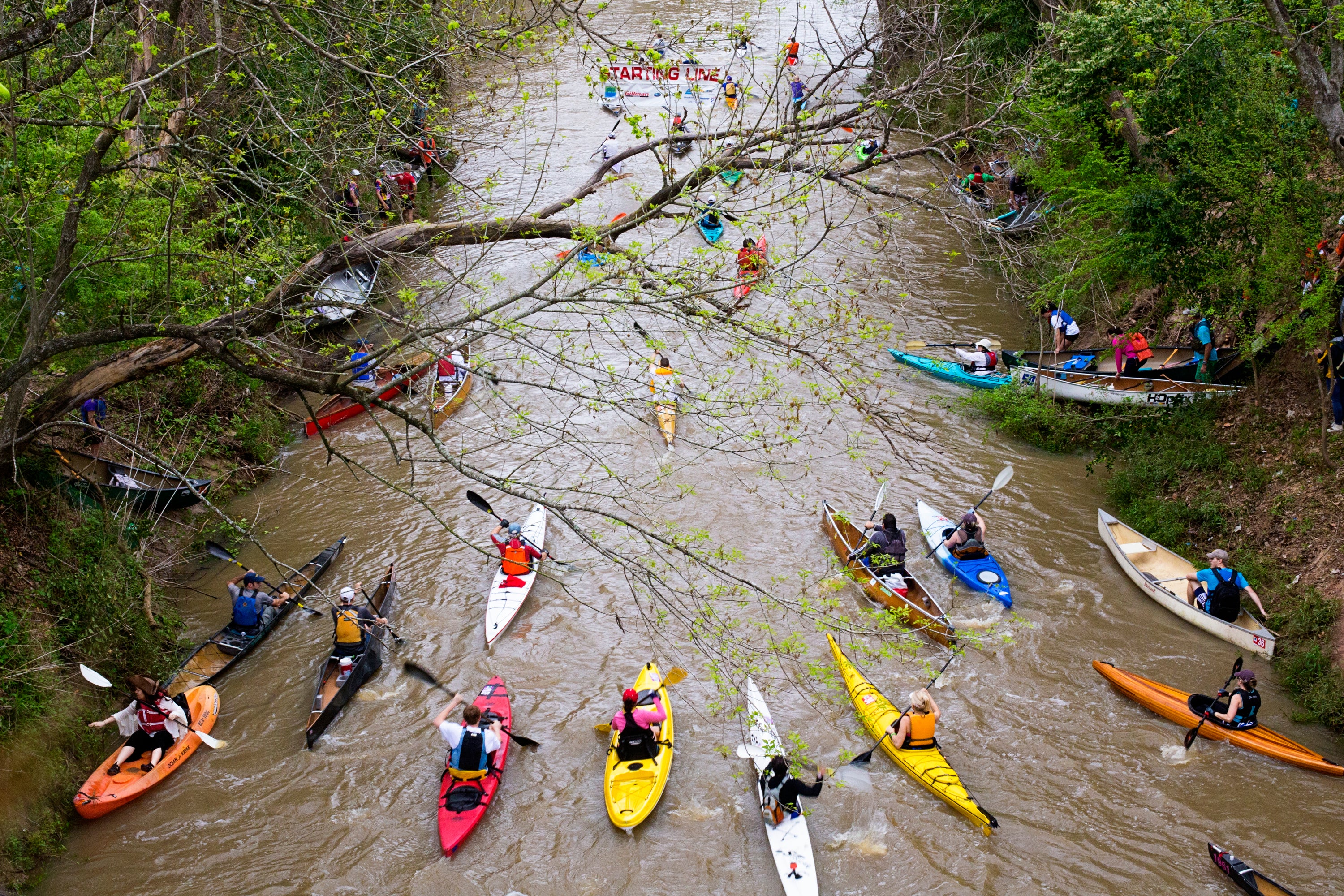
Traversing the Buffalo Bayou
Early in March for nearly 50 years, hundreds of canoes and kayaks migrate to the banks of the Buffalo Bayou in the heart of Houston, Texas – the biggest city in the state where everything is bigger.
The boats congregate for the annual running of the Buffalo Bayou Regatta; a 15-mile race named after the river it happens upon. Nicknamed the “Reeking Regatta” in the 1970s, this urban waterway was once very, very polluted - running much cleaner in present day.
"The water's definitely still not swimmable, but for canoeing and kayaking, it's great," Anne Olsen president of the Buffalo Bayou Partnership told the Houston Chronicle.

For those not familiar with Southern parlance, a bayou is a slow-moving stream. Even so, the top racers will make short work of the course, completing the Buffalo Bayou Regatta in about 100 minutes. But, curious paddlers in Houston don’t have to embrace the need for speed to enjoy a day on the water.
Although some trash remains, the Buffalo Bayou has been cleaned up thanks largely to the Buffalo Bayou Partnership; a local non-profit established in 1986 that has generated tens of millions of dollars to improve water quality, build trails, and develop parks along its banks. From its headwaters in Houston’s western suburbs to the Houston Ship Canal east of downtown, the bayou runs 53 miles. Of that meandering 53 miles, a scenic 26-mile stretch—which includes the length of the Buffalo Bayou Regatta course—has been designated an official paddle trail by the Texas Parks and Wildlife Department (TPWD).

TPWD warns recreational paddlers that the official 26-mile paddle trail is a two-day trip. The most popular stretch, advertised by area outfitter Bayou City Adventures as “the Skyline Tour,” is 7.5 miles full of excellent views of downtown skyscrapers, fishing opportunities, plentiful bird watching, and chances to see wildlife—turtles, beaver, rabbits and rare alligators—along the way.
Naturally, most critters retreat in the face of the regatta. Racers in basic sit-on-tops jostle with sleek Olympic-style kayaks and old-school plastic canoes for position in the finishing standings...and bragging rights.

On race day, the Houston kayakers and canoeists line up at a make-shift access not too far downstream from a small park in the Brianbend neighborhood. They then traverse an occasionally jungly route that skirts golf courses, the forested Memorial Park, and eventually arrive at Allen’s Landing, an early port that is now a park that’s considered the birthplace of Houston.
Now in it’s 48th year, the race draws between 700 to 900 paddlers, making it the largest canoe race in the state. And, marking a celebration of long-term citywide efforts to revive the bayou, complete with live zydeco music, cold craft brews, and a catered meal reward for the finishers.

Next March, many of them will likely return for the 2021 edition of the race. If social distancing remains the name of the game—Houston’s work-from-home order arrived about 10 days after the most recent regatta—paddlers could do worse than heading for the fourth largest city in the US to explore the Buffalo Bayou and, with a little luck, race in the Buffalo Bayou Regatta.
For those seeking competition, fun or fishing, an urban adventure awaits.
For PFD's and Waterproof Gear that's Made for Adventure, Visit the Shop Today
Read more from Dan Oko - Lunker Legacy